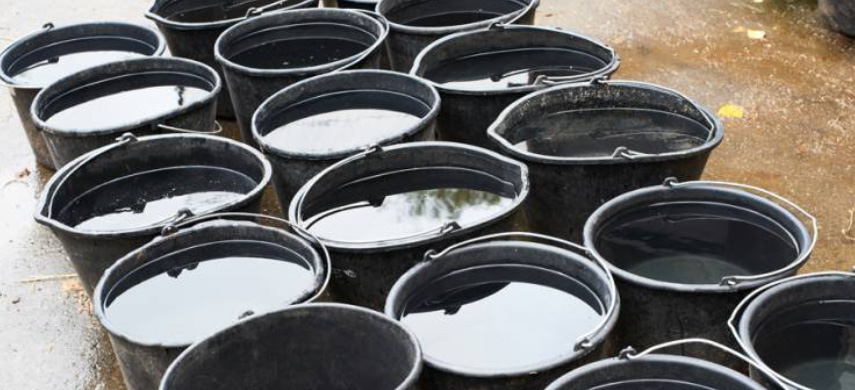
By Kentucky Equine Research Staff
As winter approaches in many areas of the world, horsemen must evaluate the nutrient requirements of their horses. Strictly speaking, water is not a nutrient, though no one can deny it’s imperative for life!
A plentiful, palatable source of water should be available to horses at all times, whether they are kept in stalls, runs, paddocks, or pastures. Because fresh forage is less plentiful in the wintertime, horses often subsist on diets composed largely of dry matter such as hay, grain, and nongrowing forage (pasture plants that have become dormant for the winter). The amount of dry matter consumed has a direct bearing on water requirements. Hay, grain, and nongrowing forage typically contain less than 15% moisture. In contrast, growing forages possess 60-80% moisture. Therefore, when horses are consuming winter rations, which are often chock full of dry matter, water requirements increase substantially. Horses are hardy creatures. Provided with adequate shelter, food, and water, they tolerate wintry elements well. Water can be offered to horses in several ways outdoors.
The option that undoubtedly involves the least amount of hassle is an automatic waterer. Because they are heated (usually by electricity, though sometimes with gas), there is little concern that they will freeze unless temperatures drop precariously low. Despite relatively few problems with automatic waterers, they should be checked once or twice daily to be sure they’re functioning properly.
Troughs should be outfitted with water heaters in late fall. Several types of water heaters are available. Horsemen may want to opt out of using heaters that float, particularly if you have a prankster or two in your herd. Nothing is more alarming than seeing the water heater being hurled from the tank during playtime exuberance.
One of the most popular heaters on the market is made specifically for the durable Rubbermaid stock tanks that have become popular throughout the country. Using the drain plug for installation, the thermostat-controlled heater sits near the bottom of the tank. If the tank is positioned near a fenceline, the electrical cord, which runs from the back of the tank, can be kept safely out of reach of horses.
Before using a heater, inspect it carefully for worn wires and other damage, and be sure it’s working properly. Once the heater has been installed or plunged into the trough, check the water for electrical sensation by placing a bare hand in the water. An accidental shock might scare some horses and back them off the water source indefinitely.
A final word on winter watering: Do not expect horses to eat snow to satisfy their water requirements. They would have to consume considerable snow to fulfill body needs. In addition, do not expect horses to break ice in troughs or tanks to gain access to potable water. Allow your horse to enjoy his winter wonderland, complete with clean, fresh water!
Reprinted courtesy of Kentucky Equine Research. Kentucky Equine Research is an international equine nutrition, research, and consultation company serving horse owners and the feed industry. Our goals are to advance the industry's knowledge of equine nutrition and exercise physiology, apply that knowledge to produce healthier, more athletic horses, and support the nutritional care of all horses throughout their lives. Learn more at KER.com.
There a more informative articles in our section on Health & Education.

































